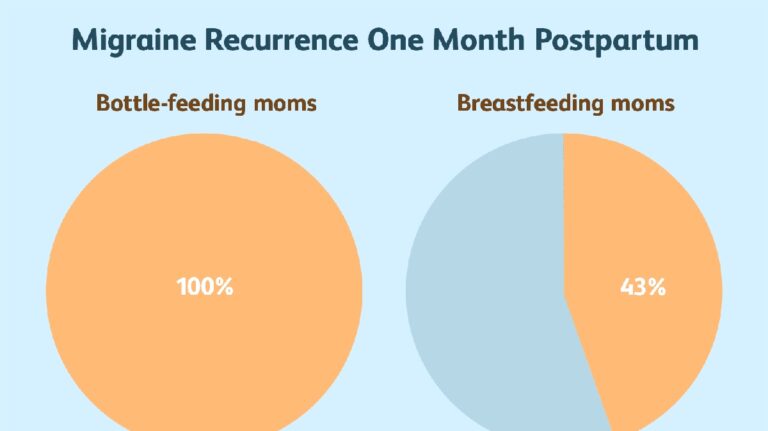Understanding migraines and hormonal changes
Migraine is a severe and debilitating type of headache that is much more common in women, with approximately 75% of all sufferers being women. Interestingly, approximately 70% of these female patients reported an association between migraine and menstrual period. This association highlights that hormonal changes can have a major impact on migraine occurrence and severity.
Many women who suffer from migraines during pregnancy often experience relief of symptoms after three months. As women approach menopause, migraine frequency often decreases because estrogen levels and fluctuations decrease. However, hormone replacement therapy, which involves the use of estrogen and progesterone, can worsen migraines that would otherwise go away. Postmenopausal women may also notice that their migraine attacks have disappeared.
Another notable observation is that breastfeeding may provide some protection against migraines. This information is especially helpful for new mothers who are dealing with migraine issues.
Impact of migraines and available treatments
Migraines can have a significant impact on a person's quality of life and daily routine. The global burden of migraine includes decreased quality of life, increased healthcare costs, and missed work and school. Because of this significant impact, effective management strategies are essential.
Recent developments in migraine management include a UAE expert consensus statement providing specific recommendations for the use of prophylactic calcitonin gene-related peptide (CGRP)-based therapies. These treatments include small molecule CGRP receptor antagonists, selective serotonin 5-HT1F receptor agonists, and FDA-approved monoclonal antibodies that target the CGRP pathway. These treatments can offer hope to people seeking relief from acute migraine attacks.
Alternative therapy: essential oils and stretching
For those interested in exploring natural remedies, essential oils provide migraine relief. Certain oils, such as lavender, peppermint, and eucalyptus, have been shown to relieve headaches by reducing tension and promoting relaxation. However, it is important to use these oils correctly to ensure safety and effectiveness.
Stretching is another alternative approach to managing migraines. Regular exercise, including expert-approved stretches that target your head, neck, and shoulders, may relieve tension and reduce migraine frequency. These stretches are especially beneficial for people with high stress or high mobility.
conclusion
Managing migraines can be difficult, especially during times of hormonal changes such as menstruation, pregnancy, and menopause. However, by understanding the relationship between hormones and migraines, considering various treatments, and incorporating lifestyle changes, individuals can effectively manage migraines and improve their quality of life. can.


